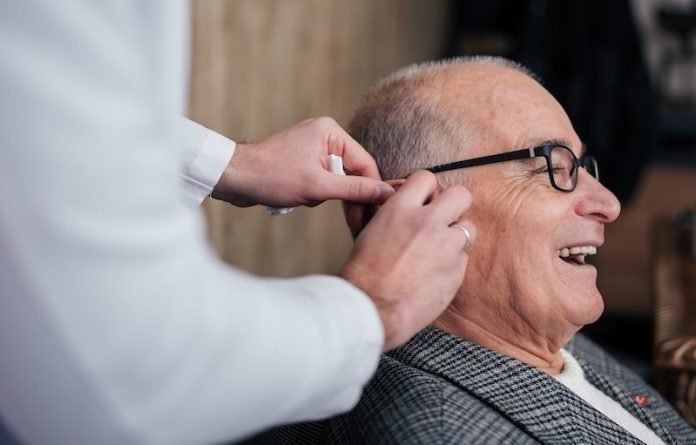
A new study at the University of Liverpool has revealed that almost 40% of older adults in England who recognized they had hearing loss did not report it to a doctor or nurse.
The study used data from the English Longitudinal Study of Aging.
It found that women, retirees, those with foreign education, lower education, smokers, and heavy drinkers were less likely to report their hearing difficulties.
Untreated hearing loss can lead to social isolation, depression, and reduced quality of life. It is also linked to an increased risk of dementia, falls, and other health issues.
The study highlights the importance of greater awareness of the importance of addressing hearing loss and access to treatment, particularly for those who may be less likely to report their hearing difficulties.
The findings emphasizes the need for action to prevent, identify, and manage hearing loss effectively.
This includes investing in hearing health research and medical education, as well as policies and public health interventions that promote hearing health.
For those who recognized and reported their hearing loss and were referred for hearing loss management, a significant proportion expressed a willingness to try and use hearing aids.
The high willingness to try hearing aids among those who reported their hearing difficulties highlights the importance of providing access to hearing aids and addressing any potential barriers to their use to improve hearing outcomes for patients.
The study also showed that nearly one-fifth of patients who reported their hearing loss to a primary care healthcare provider were not referred for further hearing assessment in secondary care, as recommended by the Royal College of General Practitioners and the National Institute for Health and Care Excellence clinical guidance.
The findings suggest that there is a need to develop interventions aimed at improving both the acknowledgment and reporting of hearing loss by individuals and primary healthcare providers.
By addressing preventable barriers to accessing hearing healthcare, patient outcomes can be improved, and the burden of untreated hearing loss reduced.
The World Health Organization launched a new primary ear and hearing care training manual on World Hearing Day 2023.
They highlight the importance of prioritizing hearing health as a public health issue and integrating ear and hearing care within primary care as an essential component of universal health coverage.
How to prevent hearing loss
Preventing hearing loss can be challenging, but there are steps you can take to reduce the risk:
Protect your ears from loud noise: Exposure to loud noise, whether at work or leisure, can cause hearing loss. To prevent hearing loss, you should avoid prolonged exposure to loud noise and wear hearing protection when necessary.
Maintain good ear hygiene: Good ear hygiene can help prevent ear infections, which can lead to hearing loss. You should keep your ears clean and dry and avoid using cotton swabs or other objects to clean your ears.
Quit smoking: Smoking has been linked to hearing loss. Quitting smoking can help reduce the risk of hearing loss.
Manage chronic conditions: Chronic conditions such as high blood pressure, diabetes, and cardiovascular disease can increase the risk of hearing loss. Managing these conditions through a healthy lifestyle and medical treatment can help reduce the risk.
Monitor medications: Some medications, such as antibiotics and chemotherapy drugs, can cause hearing loss. If you are taking medications, discuss the risk of hearing loss with your doctor.
Maintain a healthy lifestyle: A healthy lifestyle can help reduce the risk of hearing loss. This includes eating a balanced diet, getting regular exercise, and getting enough sleep.
Get regular hearing screenings: Regular hearing screenings can help detect hearing loss early and prevent further damage. If you have concerns about your hearing, talk to your doctor about getting a hearing screening.
If you care about hearing loss, please read studies about antibiotic drug that can lead to hearing loss, and whether you should get an hearing aid or see a specialist.
If you care about brain health, please read studies about how the Mediterranean diet could protect your brain health, and these antioxidants could help reduce dementia risk.
The study was conducted by Dr. Dalia Tsimpida et al and published in International Journal of Audiology.
Copyright © 2023 Knowridge Science Report. All rights reserved.



